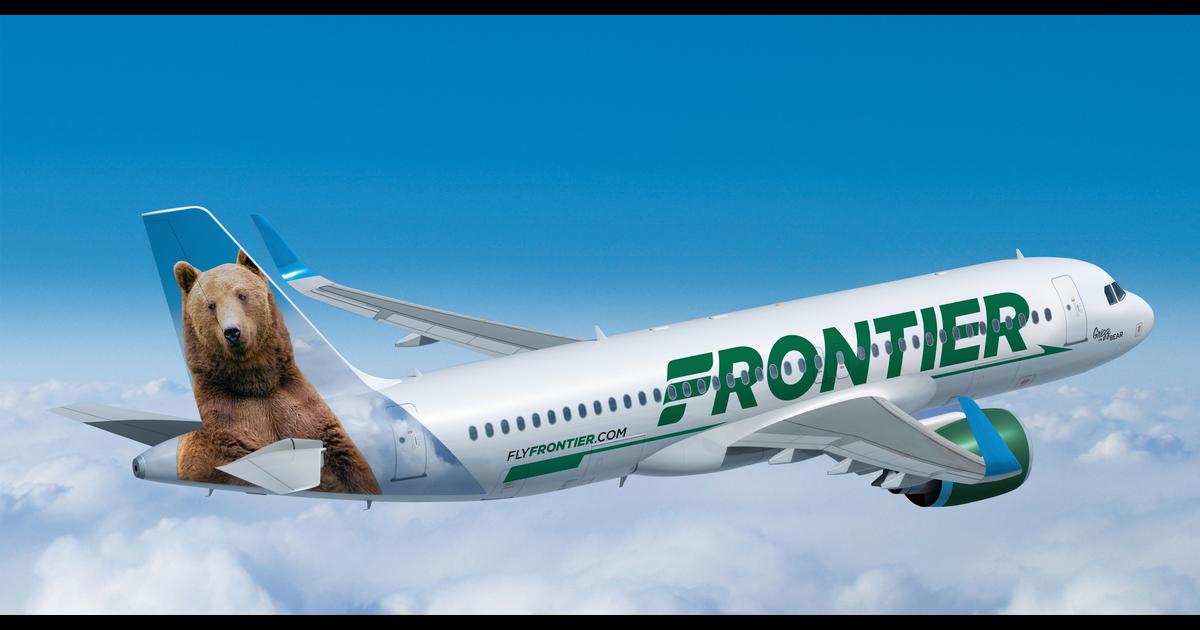Low-fare carrier Frontier Airlines (NASDAQ: ULCC) this week launches 13 new nonstop routes from Orlando International Airport (MCO), including service to five international destinations: Costa Rica, El Salvador, Jamaica, Mexico and The Bahamas. The new service expands Frontier’s Orlando route map to 81 nonstop destinations, the most of any airline at MCO and, to celebrate the new service, Frontier is offering introductory fares starting at $19*.
“We’re excited to celebrate another remarkable expansion of service at Orlando International Airport with 13 new routes launching this month, along with three more coming in December,” said Daniel Shurz, senior vice president of commercial, Frontier Airlines. “We’re proud to offer the most nonstop routes of any airline at MCO and look forward to welcoming new travelers onboard to explore our expansive network of international and domestic destinations from Orlando.”
“The start of Frontier’s winter air service expansion is coming at a time when Americans are more ready than ever to travel again,” said Phil Brown, Chief Executive Officer of the Greater Orlando Aviation Authority. “With inaugural flights to domestic and international places like Sioux Falls, Idaho; Montego Bay, Jamaica; and Turks & Caicos, we welcome the ability to increase access to the country’s most visited destination and expanding travel opportunities for Central Florida residents.”
New Routes from Orlando International Airport (MCO):
| SERVICE TO: | SERVICE START: | SERVICE FREQUENCY: | INTRO FARE: |
| Fort Myers, Fla. (RSW) | Nov. 1, 2021 | Daily | $19* |
| Harlingen, Texas (HRL) | Nov. 1, 2021 | 2x Weekly | $39* |
| Pensacola, Fla. (PNS) | Nov. 1, 2021 | 3x Weekly | $19* |
| Sioux Falls, S.D. (FSD) | Nov. 1, 2021 | 2x Weekly | $49* |
| Bentonville, Ark. (XNA) | Nov. 1, 2021 | 2x Weekly | $39* |
| Montego Bay, Jamaica (MBJ) | Nov. 2, 2021 | 3x Weekly | To MBJ: $79* |
| Nassau, The Bahamas (NAS) | Nov. 2, 2021 | 4x Weekly | To NAS: $49* |
| El Paso, Texas (ELP) | Nov. 3, 2021 | 2x Weekly | $59* |
| Cedar Rapids, Iowa (CID) | Nov. 4, 2021 | 2x Weekly | $39* |
| Fargo, N.D. (FAR) | Nov. 4, 2021 | 2x Weekly | $59* |
| San Salvador, El Salvador (SAL) | Nov. 4, 2021 | 2x Weekly | To SAL: $69* |
| Cozumel, Mexico (CZM) | Nov. 6, 2021 | 1x Weekly | To CZM: $69* |
| Liberia, Costa Rica (LIR) | Nov. 11, 2021 | 2x Weekly | To LIR: $69* |
| Antigua & Barbuda (ANU) | Dec. 4, 2021 | 1x Weekly | To ANU: $79* |
| Belize City, Belize (BZE) | Dec. 11, 2021 | 1x Weekly | To BZE: $69* |
| Turks & Caicos (PLS) | Dec. 19, 2021 | 1x Weekly | To PLS: $79* |
Frequency and times are subject to change, so please check FlyFrontier.com for the most updated schedule.

